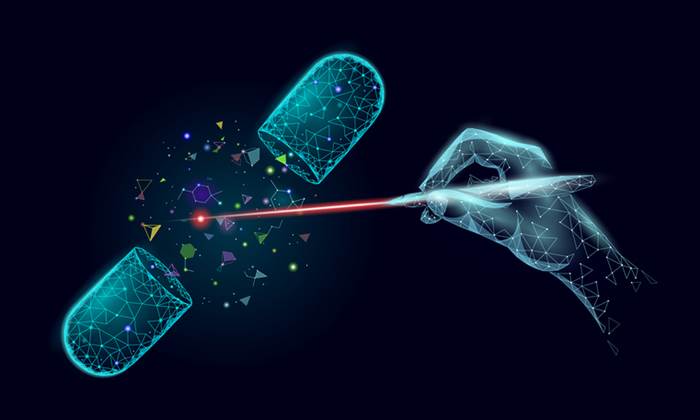UNSW has signed a new deal with Algorae Pharmaceuticals to build an AI platform to help create new drugs and identify effective combinations of therapeutics.

According to the university, the new AI platform aims to improve the process of finding and approving new drugs, making it faster and more cost-effective.
It does this by supporting targeted approaches to drug repositioning—when existing drugs can be used to treat a wider range of diseases.
Usually, the pre-clinical stage of drug discovery can take up to six years, potentially costing billions of dollars.
AI tools are helping speed up the development process—by repositioning drugs, identifying drug interactions, assessing toxicity, and predicting novel drug targets. This helps guide researchers towards more promising avenues of investigation, and at a lower cost.
The partnership builds upon sophisticated AI models that were already developed by a team of data and AI specialists within the Biomedical AI Laboratory, led by Associate professor Fatemeh Vafaee, deputy director of UNSW Data Science Hub and member of the UNSW AI Institute.
Vafaee told Digital Nation that UNSW chose to partner with Algorae Pharmaceuticals due to their track record as a “forward-thinking” company committed to harnessing the power of AI in drug development.
“Algorae has demonstrated an understanding of the pivotal role AI plays in this field. Their dedication to R&D, coupled with their experience collaborating with the research sector, aligns with our shared objectives and mutual benefits,” she said.
According to the university, the project leverages the wealth of expertise in AI, data science and drug discovery that resides within the UNSW Data Science Hub and the UNSW AI Institute.
In collaborating closely with Algorae, Vafaee leads a team of researchers to expand and refine this model with a specific focus on the company’s objectives.
This collaborative effort includes the goal of generating novel drug combinations that hold promise for comprehensive clinical investigation.
Vafaee said, “We will be using this AI platform to create predictive models that enable the repurposing of existing drugs, either alone or in combinations, for new therapeutic uses with high precision and efficiency, while also expediting benefits and preventing costly failures in the drug discovery pipeline.”
Over the coming 12 months, Vafaee told Digital Nation UNSW’s primary focus is on the development of a minimum viable product (MVP).
“This MVP will encompass the initial AI model, a discovery dataset, and the associated predictions. These elements are crucial for the initial phase of experimental validation conducted in collaboration with Algorae Pharmaceuticals,” she said.
Importance of AI in drug development
Vafaee said the landscape of pharmaceuticals is undergoing a "revolutionary shift" with the integration of AI into drug discovery and development.
“AI platforms can analyse complex data generated from large molecular screening profiles, molecular structures, drug mechanisms of action, personal health records, and genetic information,” she said.
These existing platforms, powered by advanced computational pipelines and extensive drug datasets, have already achieved notable successes. These include repurposing drugs for cancer treatment and predicting synergistic drug combinations effective against Covid.
According to Vafaee, AI plays an increasingly critical role in drug development, revolutionising the field in multiple ways.
“One of the key challenges in drug development is the identification of synergistic combination therapies for complex diseases. This task involves exploring a vast landscape of compound pairings, which is often hindered by practical constraints such as cost, feasibility, and complexity, limiting the scope of in vivo and in vitro experiments,” she said.
In recent years, Vafaee said the field of pharmacology has witnessed advancements in leveraging AI techniques to address these challenges.
“Our project, for example, is designed to develop an AI predictive modelling platform that harnesses complex data from molecular screening profiles, molecular structures, drug targets, genomics profiles, and more,” she said.
“Our objective is to identify novel combination drug candidates and repositioning opportunities through AI-enabled predictive modelling. We aim to expedite the drug discovery process, reduce costs, and increase the likelihood of finding effective treatments.”
Vafaee added, “Overall, AI empowers researchers to make data-driven decisions and uncover hidden insights that were previously inaccessible. In essence, AI is a pivotal tool in modern drug development, enabling us to accelerate the pace of innovation and improve healthcare outcomes.”


.png&h=140&w=231&c=1&s=0)
_(22).jpg&h=140&w=231&c=1&s=0)





_(26).jpg&w=100&c=1&s=0)

 iTnews Executive Retreat - Security Leaders Edition
iTnews Executive Retreat - Security Leaders Edition












_(1).jpg&h=140&w=231&c=1&s=0)



